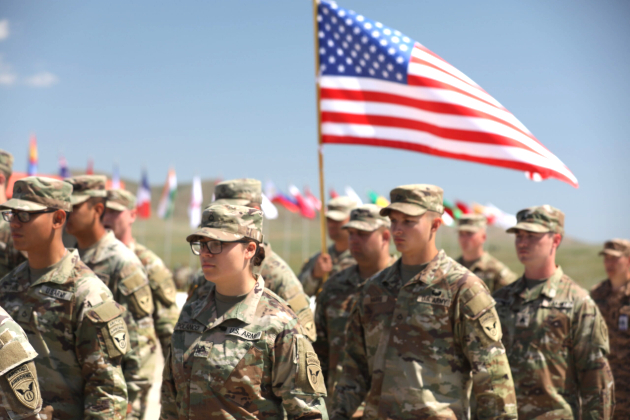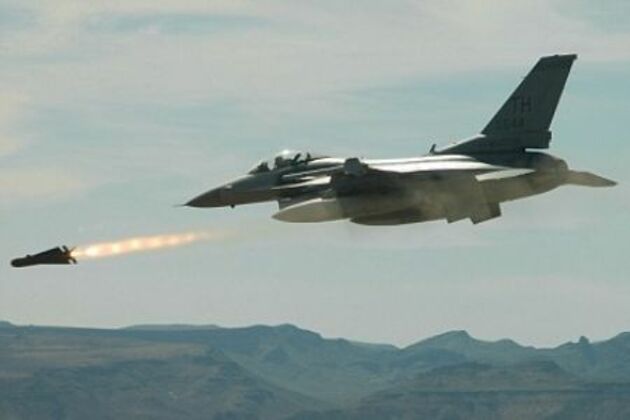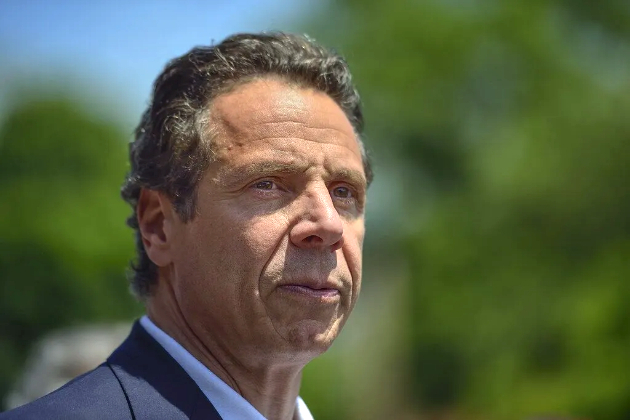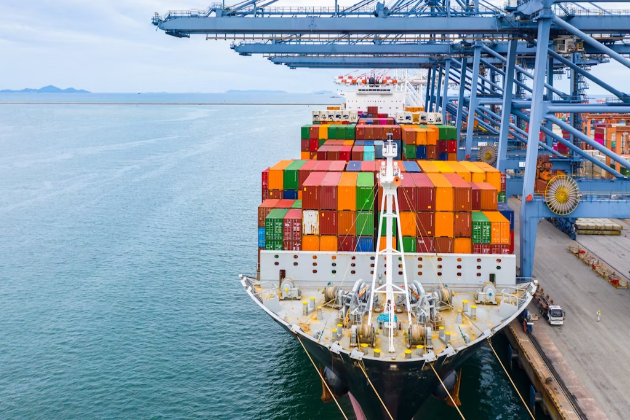No longer a pariah? Russia and China could be about to 'normalise' North Korea and leave the US with another Asian headache
RT.com
18 Aug 2022, 19:04 GMT+10
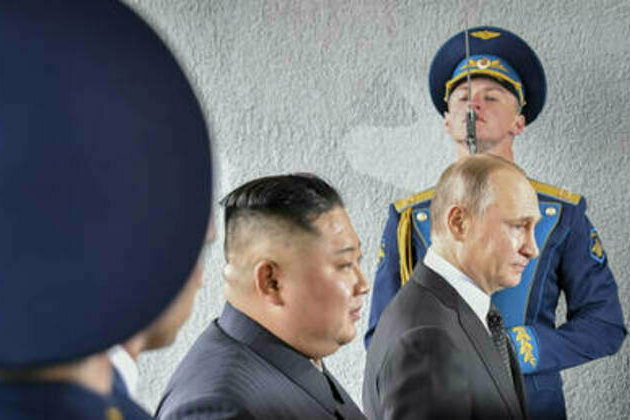
Once a Cold War proxy battleground for superpowers, is the Korean peninsula being pulled apart by bloc politics again?
At beginning of this week the North Korean Central News Agency (KCNA) reported that Russian President Vladimir Putin had exchanged letters with Supreme Leader Kim Jong Un.
The report stated both countries had agreed to "expand the(ir) comprehensive and constructive bilateral relations with common efforts".
Matching the anniversary of Korean independence on August 15th, Putin's outreach comes as Russia seeks new partners away from the West. It also follows reports that North Korean expatriate workers would be assisting in the reconstruction of liberated territories in the Donetsk and Lugansk People's Republics, to which it recently granted diplomatic recognition.
But it's also an indication that the world has changed, significantly. Only a few years ago Russia, as well as China, were at least somewhat willing to cooperate with the United States in imposing sanctions on the DPRK in the bid to curb its nuclear and missile development.
That situation no longer exists. The outbreak of the conflict in Ukraine, combined with America's bid to try and contain the rise of China, now means we exist in a multipolar international environment where multiple great powers are competing for influence.
This breaks down the space for cooperation over common issues, but also increases the need for strategic thinking among the competitors. In the eyes of Moscow, this makes their calculus concerning North Korea even more important than it was before, drawing parallels to the Cold War era.
We should not forget that it was the Soviet Union that enabled the creation of the DPRK in the first place. It was following the closing days of World War II that a strategic contest for influence in East Asia began to emerge between the US and the USSR over the former territories of Imperial Japan. As the Red Army marched south, an agreement was made to divide the Korean Peninsula at the 38th parallel.
Although the original agreement was designed only to make the division temporary, geopolitical frictions soon saw it become permanent, and rival Korean states emerged. The US-backed Republic of Korea in the South, and the Soviet- and China-supported Democratic People's Republic of Korea (DPRK) in the North, headed by former Red Army captain and guerrilla fighter Kim Il-sung.
The two young nations went to war in 1950, again supported by their respective superpower backers. Active fighting in that conflict ended three years later, but a formal peace agreement has not been signed to this day. And while Koreans on both sides of the divide wish for reunification, the scale of foreign involvement in the 1950s war stands as a reminder the peninsula is seen as a strategically critical landmass linking the continent of mainland Eurasia to the eastern seas.
Great powers have always seen it as a chess piece in the bid to dominate North East Asia. This had led to a tug of war which over the centuries has included the Ming and Qing Dynasties, the Russian Empire, the Empire of Japan and the United States, the People's Republic of China and the Soviet Union.
But for the last three decades, since the end of the original Cold War, North Korea found itself increasingly isolated as China and Russia, for a period of time, both sought ties with the West, as well as the much more lucrative and successful South Korea. US unipolarity meant there was little interest from Moscow or Beijing in opposing America's wishes to curb Pyongyang's nuclear trajectory, which it sees as its last hope for regime survival.
But now a new paradigm is emerging, and just like in the times of old the DPRK, it's seen yet again as a strategically indispensable bulwark against American power and military hegemony on Russia's own border periphery, not least against its US-backed neighbors such as Japan.
In such an environment, there is no longer any benefit for Russia in cooperating with the US on the North Korean issue. The horse of "North Korea denuclearization" has long bolted, and instead the presence of a nuclear armed DPRK with ICBM capability is another thorn in Washington's side, which if removed, only expands US power.
Thus, when America demanded another sanctions resolution against North Korea at the UN Security council earlier this year, both Russia and China vetoed it for the first time in over 15 years. It is a sign of the world we live in.
Moving on from here, Russia is likely to deepen its military and economic ties with North Korea, primarily because of its strategic and political worth.
In this view, history has completed a full circle and as the US shores up its allies to confront Moscow and Beijing, the theme of "bloc politics" re-emerges.
 Share
Share
 Tweet
Tweet
 Share
Share
 Flip
Flip
 Email
Email
Watch latest videos
Subscribe and Follow
Get a daily dose of North Korea Times news through our daily email, its complimentary and keeps you fully up to date with world and business news as well.
News RELEASES
Publish news of your business, community or sports group, personnel appointments, major event and more by submitting a news release to North Korea Times.
More InformationInternational
SectionUS Army to list only birth sex in transgender soldiers' records
WASHINGTON, D.C.: The U.S. Army plans to change the records of transgender soldiers to list only their sex at birth, according to a...
US FAA orders flight reductions at Newark Airport to ease congestion
WASHINGTON, D.C.: The Federal Aviation Administration (FAA) said this week that it will require airlines to reduce the number of flights...
Nine children from 1 family die as Israel Air force pilots hit 100 targets in Gaza
GAZA - The home of a doctor working in the emergency room at the Nasser Medical Complex in southern Gaza was struck by Israel Air...
Universal unveils Epic Universe to challenge Disney’s dominance
ORLANDO, Florida: For years, Universal Orlando played second fiddle to Disney's sprawling empire in Central Florida. Now, with the...
Biden-era fuel rules face pushback over EV inclusion
WASHINGTON, D.C.: The U.S. Transportation Department is expected to say that fuel economy rules created under President Joe Biden went...
US Justice Department probes Cuomo over alleged COVID misstatements
WASHINGTON, D.C.: The U.S. Justice Department is investigating Andrew Cuomo, the former governor of New York and a top candidate for...
Business
SectionFord sues California law firms over alleged Lemon Law fee fraud
DEARBORN, Michigan: Ford Motor Company has filed a lawsuit against several California lawyers and law firms, accusing them of cheating...
US drug launch prices double in four years, Reuters finds
BRUSSELS, Belgium: U.S. drugmakers are charging significantly more for new treatments, particularly those targeting rare diseases,...
Allegations of secret nursing home deals shake UnitedHealth
MINNETONKA, Minnesota: UnitedHealth shares took a sharp hit this week, after a report by the UK's Guardian alleged the healthcare giant...
Trump-backed $1.5 billion golf project breaks ground near Hanoi
HUNG YEN, Vietnam: A new US$1.5 billion luxury golf and residential project backed by the Trump Organization officially broke ground...
Aussie firms upbeat on China outlook despite trade tensions
SYDNEY, Australia: Australian businesses are feeling optimistic about their prospects in China despite escalating global trade tensions,...
Russia’s top oil company takes over largest rare earth deposit
MOSCOW, Russia: Russia's top oil company, Rosneft, has taken over control of the country's largest rare earth metals deposit, Tomtor,...

